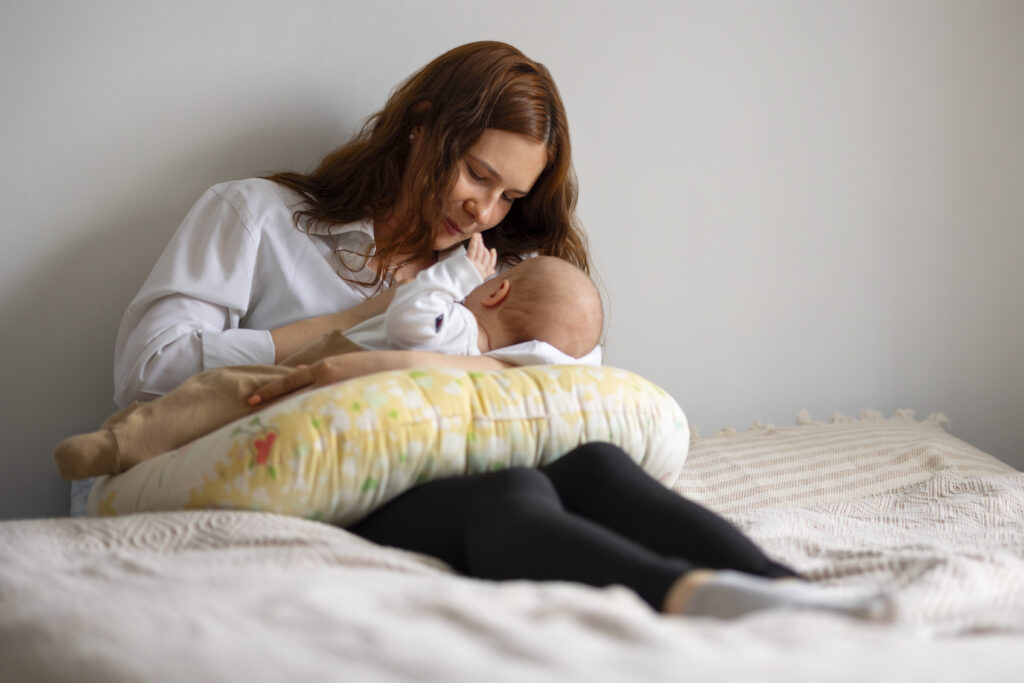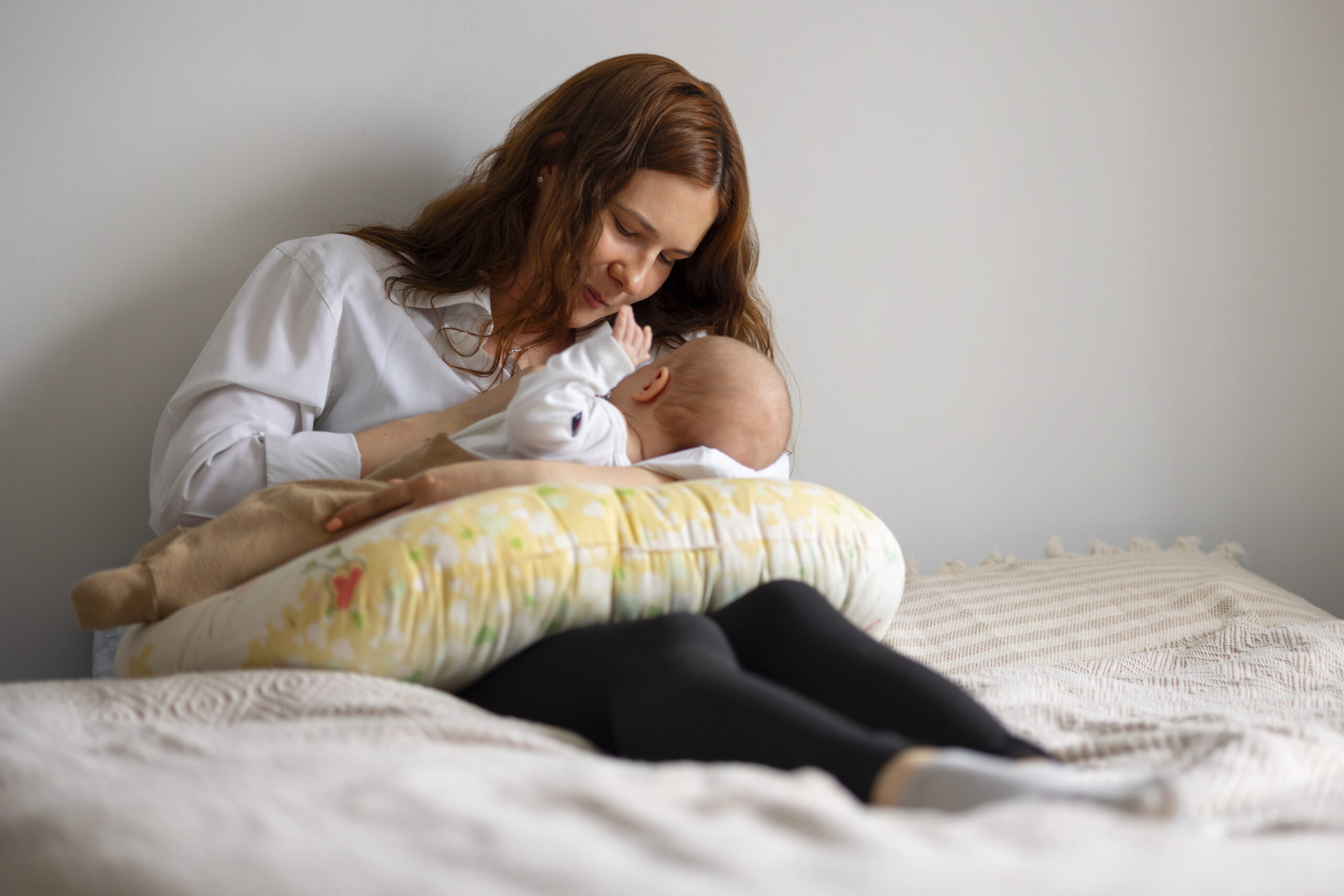Learn about the various factors that can contribute to postpartum depression, from hormonal changes to lifestyle stress, and how to manage them.
Postpartum depression (PPD) is a mental health condition that affects many new mothers after childbirth. It goes beyond the typical « baby blues » and can persist for weeks, months, or even longer. PPD can affect not only a mother’s emotional well-being but also her physical health and relationships. While hormonal changes are often cited as the main cause of postpartum depression, a range of other factors can also contribute to this condition.
In this article, we will explore the underlying causes of postpartum depression, examining both biological and environmental triggers, and provide insight into how to manage and prevent this serious but treatable condition.

Understanding Postpartum Depression
Postpartum depression is a form of clinical depression that can occur after childbirth. It’s important to note that postpartum depression is different from the baby blues, which refers to the brief period of mood swings and sadness that many new mothers experience right after giving birth. While the baby blues typically last for a few days to two weeks, PPD can last much longer and significantly impact a woman’s ability to care for herself and her baby.
The exact cause of postpartum depression is not known, but it’s believed to result from a combination of physical, emotional, and environmental factors.
Biological Factors Behind Postpartum Depression
1. Hormonal Changes
One of the most significant contributors to postpartum depression is the sudden hormonal shift that occurs after childbirth. During pregnancy, a woman’s body experiences elevated levels of estrogen and progesterone. These hormones help regulate mood, but after the baby is born, the levels of these hormones drop sharply. This sudden decline can trigger feelings of sadness, anxiety, and irritability, especially in women who may already be vulnerable to depression.
Additionally, the hormone thyroxine, produced by the thyroid gland, can also decrease after childbirth, leading to fatigue and mood changes. Thyroid dysfunction is another potential cause of postpartum depression.
2. Sleep Deprivation
The physical demands of caring for a newborn can take a toll on a mother’s well-being. Sleep deprivation, common in the weeks after childbirth, is a known contributor to mood disorders, including postpartum depression. When sleep is disrupted, the brain’s ability to regulate mood and emotions is compromised, making new mothers more susceptible to depression.
Psychological and Emotional Factors
3. Past History of Mental Health Issues
Women with a personal or family history of depression, anxiety, or other mental health conditions are at a higher risk for postpartum depression. Previous experiences with depression, including during pregnancy, increase the likelihood of developing PPD.
4. Unrealistic Expectations and Pressure
Many new mothers have unrealistic expectations about motherhood, fueled by societal pressures to « do it all. » The desire to be the « perfect » mom, combined with the overwhelming responsibility of caring for a newborn, can lead to feelings of inadequacy and self-doubt. When expectations are not met, these emotions can spiral into depression.
Social and Environmental Triggers
5. Lack of Support
A lack of social support is one of the most significant environmental factors contributing to postpartum depression. Women who do not have a strong support system of family, friends, or a partner are more likely to feel isolated and overwhelmed by the challenges of new motherhood. Emotional support is crucial for a mother’s mental health, and without it, the risk of developing PPD increases.
6. Relationship Issues
Struggles in relationships, particularly with a partner, can exacerbate feelings of depression. After the birth of a child, relationships often undergo stress due to new responsibilities, lack of sleep, and changing dynamics. Marital conflict or lack of support from a partner can contribute to feelings of loneliness and depression.
Life Changes and Stressors
7. Financial Stress
Raising a child can bring significant financial strain. The costs of medical care, baby supplies, and childcare can create anxiety, particularly for families who were already struggling financially before the baby’s arrival. Worrying about money can add to the emotional burden new mothers face, contributing to PPD.
8. Career and Identity Changes
For many women, the transition from professional life to motherhood can be difficult. Some may struggle with losing their sense of identity or missing their careers. Others may feel guilty about going back to work or experience stress trying to balance work and motherhood. These career and identity struggles can increase feelings of anxiety and depression after childbirth.
Physical Health Complications
9. Difficult Labor or Delivery
A traumatic birth experience, such as a prolonged labor or delivery complications, can increase the risk of postpartum depression. Women who undergo emergency C-sections or other interventions may feel a sense of loss or failure, which can contribute to feelings of depression.
10. Breastfeeding Challenges
While breastfeeding is often seen as a bonding experience between mother and child, it can also be a source of frustration and anxiety if it doesn’t go smoothly. Difficulties with breastfeeding, such as pain, low milk supply, or issues with the baby latching, can lead to feelings of guilt, shame, and inadequacy. These challenges can contribute to postpartum depression, especially if a mother feels pressure to exclusively breastfeed.
Internal Links for Further Reading
To learn more about the postpartum period and managing mental health, explore these helpful resources:
- Postpartum Recovery: Explore articles and tips for recovering after childbirth and managing postpartum health.
- Pregnancy Symptoms: Learn about common pregnancy symptoms and how they evolve during and after pregnancy.
- Pregnancy Testing: Find information about pregnancy tests and when to take them for the most accurate results.
Managing and Treating Postpartum Depression
While postpartum depression can be overwhelming, it’s important to remember that it’s a treatable condition. The first step toward recovery is recognizing the symptoms and seeking help. There are several effective treatment options available.
11. Professional Therapy and Counseling
One of the most common and effective treatments for postpartum depression is talk therapy. Cognitive-behavioral therapy (CBT) and interpersonal therapy (IPT) have been shown to help women navigate their emotions, change negative thought patterns, and improve their mental well-being.
12. Medication
In some cases, healthcare providers may recommend antidepressants to treat postpartum depression. Medications such as selective serotonin reuptake inhibitors (SSRIs) can help regulate mood by increasing serotonin levels in the brain. It’s important to discuss with your doctor whether medication is the right choice for you, especially if you’re breastfeeding.
Prevention Tips for Postpartum Depression
While not all cases of postpartum depression can be prevented, there are steps you can take to reduce your risk.
13. Build a Strong Support System
Having a support network in place before the baby arrives can make a significant difference in your postpartum experience. This could include your partner, family, friends, or joining a new mom’s support group. Don’t be afraid to ask for help with household tasks, baby care, or simply having someone to talk to.
14. Prioritize Sleep and Self-Care
Sleep deprivation is a major trigger for mood disorders. As difficult as it may be, try to prioritize rest and self-care. Accept help from loved ones so you can catch up on sleep. Simple self-care practices, such as taking a shower, going for a walk, or having time to yourself, can improve your mood.
15. Set Realistic Expectations
Motherhood is a learning process, and no one is perfect. Setting realistic expectations for yourself and your family can reduce feelings of guilt and inadequacy. Focus on bonding with your baby rather than trying to meet societal standards of « the perfect mother. »
External Links for Further Reading
To gain more insights into postpartum depression, explore these authoritative external resources:
- National Institute of Mental Health – A comprehensive guide to postpartum depression symptoms, causes, and treatments (NIMH).
- Postpartum Support International – A global organization offering support and resources for women experiencing postpartum depression (PSI).
- The American Psychological Association – Information on postpartum depression and mental health (APA).
Conclusion
Postpartum depression is a complex condition with multiple contributing factors, from hormonal changes to lifestyle stressors. While it can be challenging to navigate the emotional and physical demands of motherhood, understanding the causes of postpartum depression can help you take the necessary steps toward recovery.
By recognizing the risk factors, building a strong support system, and seeking professional help when needed, postpartum depression can be managed and treated. Remember, postpartum depression is not a reflection of your abilities as a mother—it’s a medical condition that many women experience, and help is available.
If you’re struggling with postpartum depression, reach out to a healthcare professional to get the support you need. Taking care of your mental health is just as important as caring for your baby.
